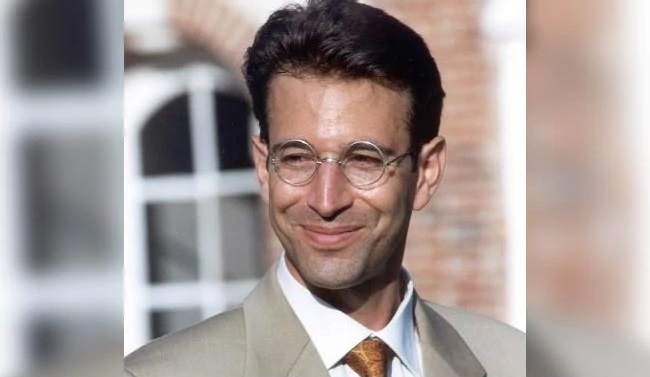U.S. Secretary of State Antony J. Blinken said in a statement on Thursday that “the United States is deeply concerned by the Pakistani Supreme Court’s decision to acquit those involved in Daniel Pearl’s kidnapping and murder and any proposed action to release them.”
Blinken noted: “Ahmad Omar Saeed Sheikh was indicted in the United States in 2002 for hostage-taking and conspiracy to commit hostage-taking, resulting in the murder of Pearl, the South Asia Bureau Chief for the Wall Street Journal, as well as the 1994 kidnapping of another United States citizen in India.”
He added: “The court’s decision is an affront to terrorism victims everywhere, including in Pakistan. The United States recognizes past Pakistani actions to hold Omar Sheikh accountable and notes that Sheikh currently remains detained under Pakistani law. We expect the Pakistani government to expeditiously review its legal options to ensure justice is served. We take note of the Attorney General’s statement that he intends to seek review and recall of the decision. We are also prepared to prosecute Sheikh in the United States for his horrific crimes against an American citizen. We are committed to securing justice for Daniel Pearl’s family and holding terrorists accountable.”
Pearl kidnapped in Karachi while reporting on the British terrorist Richard Reid known as the “shoe bomber.”
Pearl was beheaded by his kidnappers. Four suspects were arrested in 2002, and convicted of the kidnap and murder of Pearl. One of them was British national Ahmed Omar Saeed Sheikh, who received the death penalty.
The Sindh High Court on April 2, 2020, commuted the death sentence of Omar Sheikh to seven years, making him eligible for release on time served. The court acquitted the other three who were serving life sentences.
However, the Sindh provincial government ordered immediate detentions of the four men under the West Pakistan Maintenance of Public Order (MPO) Ordinance 1960.
The SHC again nullified the detention on December 24, 2020, and orders of immediate release of the accused were given.
The Sindh government, however, did not release the accused and challenged the SHC decision in the Supreme Court.
On January 25, a separate bench of the top court maintained: “One of the findings recorded by the SC short order is that the respondents are not in the enemy aliens within the meaning of Article 10 (9) of the constitution. Meaning this term is hitherto judicially unexplained.”
This led to Thursday’s decision of the court to order the release of Omar Sheikh.
The White House said the US is outraged by the decision. Press secretary Jen Psaki called it an “affront to terrorism victims everywhere, including in Pakistan.”
He said at a press briefing: “We call on the Pakistani government to expeditiously review its legal options, including allowing the United States to prosecute Sheikh for the brutal murder of an American citizen and journalist and we’re committed to securing justice for Daniel Pearl’s family and holding terrorists anywhere accountable for their heinous crimes.”












